
Keeping your trucks on the road is crucial to transportation companies in America. However, with so many roadside assistance options available for semi-truck drivers, choosing the right one for your business can be difficult. Today, we’ll wade through the numerous options and give you a side by side comparison of the most popular aspects of 24-hour roadside assistance programs with the intention of making your decision easier and clearer.
There are several areas you should both consider and focus on when choosing the right roadside assistance program for your semi-trucks: time coverage, towing distance, location, vehicle type and class covered, specific benefits, additional perks, and most importantly, reputation for outstanding service.
At the end of the day, having a roadside assistance program available for your drivers has the potential to save your trucking company thousands of dollars. This is often the case with just one call to your roadside assistance provider. So, the importance of a roadside assistance program is universally understood, however, let’s look at the criteria for comparing the roadside assistance programs available to truckers.
(more…)
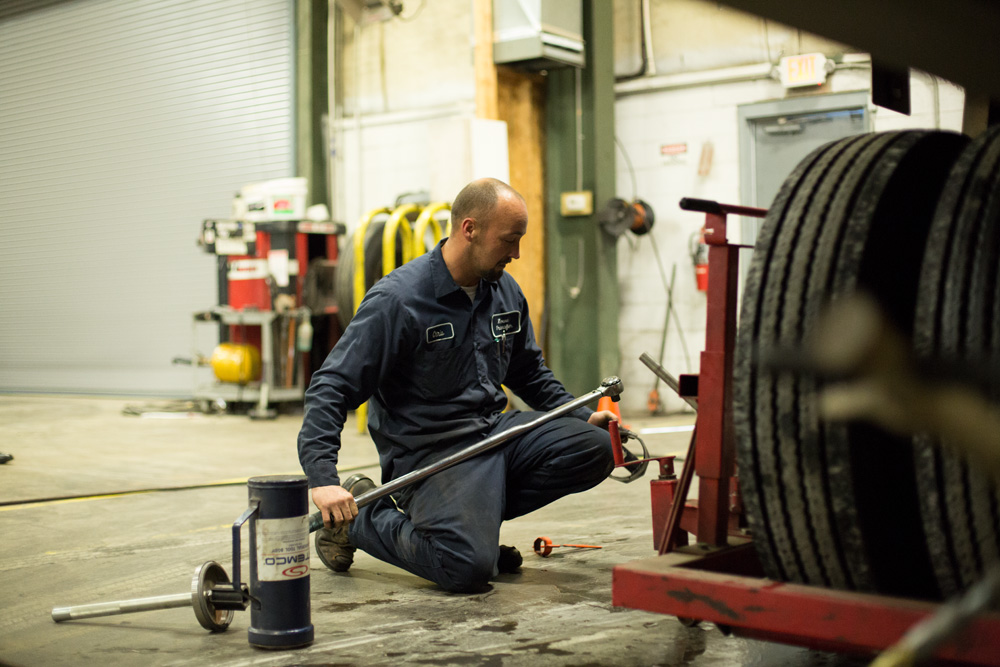
Chris Lackey began working with Rowe Transfer 12 years ago. He was originally hired for the rigging team, then one day a forklift broke. Chris was able to fix it, and he’s been fixing forklifts and the like ever since. When Certified Diesel Solutions came afoot in 2009, Chris moved over into the position of a mechanic. Though he did not go to school for mechanics, he is a natural. Chris has always been the type to work on stuff. He is part self-taught, part learning through observation, and part lessons learned. His motto is “if it ain’t broke, I’m still going to mess with it.”
His job with CDS is to evaluate mechanical issues on Rowe’s fleet or other fleets that come into the shop. Chris enjoys the mechanical planning and customer service aspects of his job. He loves that every customer that comes to Certified Diesel Solutions is treated as a family member. The team will spend time with you one-on-one to ensure that your mechanical services are done well. This family atmosphere of neither workers or customers being treated as a number is what keeps Chris with Certified Diesel Solutions.
When he’s not at work, there’s a good possibility he’s still covered in grease. Chris has 6 boats, 3 jet skis, 3 four wheelers, and 10 vehicles to keep his gear-oriented mind’s wheels turning. He enjoys spending time with his wife, Krystal, and 7-year-old daughter, Audrina. Chris also likes to go fishing in his free time, especially when it’s for crappie.
Have something with an engine that needs work? Give Chris and the CDS team a call! They’ll work for you to get the job done. Calls us at 865-964-6598 or click HERE to contact us online.
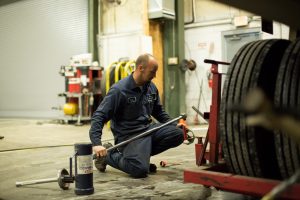
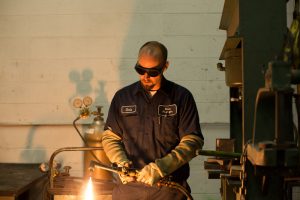
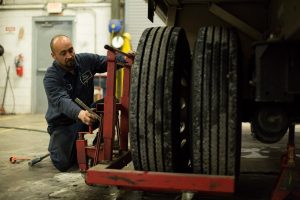

Providing preventative maintenance is a core concept of keeping any machine running and semi-trucks are no exception. A strong adherence to a preventative maintenance plan can reduce breakdowns between normal service and save your freight company tons of cash, not to mention a headache. Preventative maintenance can’t prevent all mechanical or electrical failures or issues, but it can catch problems before they become a bigger issue out on the open road. When a mechanical failure happens in the field it can lead to costly emergency towing and/or repair bills that will definitely exceed the minimal cost of preventative care.
Check List for Preventative Maintenance
The first step of preventative maintenance is coming up with a game plan and then implementing it on a normal schedule. It’s typically recommended that your preventative maintenance should be carried out every 5,000 to 15,000 miles, depending on the typical conditions of your driving environment. In establishing your preventative maintenance schedule, there are several systems that should be inspected during a typical preventative maintenance check, however, additional items may be required depending on equipment or circumstances.
Some of the primary categories that should be a normal part of your preventative maintenance checklist include:
- Power Train
- Suspension
- Air Brakes
- Steering Axle
- Auxiliary Equipment
- Lamps
- Electrical Systems
- Body and Chassis
- Tires and Wheels
- Coupling Devices
The Prefect Preventative Maintenance Plan
As a fleet manager, you want a standardized, easy to follow, preventative maintenance schedule that allows your semi-trucks on the road while also surviving inevitable maintenance crew turn over. Manufacturers can often provide preventative maintenance schedules, but they can be complex and difficult to understand or follow. Certified Diesel Solutions provides these necessary preventative maintenance services for owner/operators and fleet managers to save you both time and money.
Want one less thing on your to-do list? Let us manage your service records for you. Contact us today with questions about your preventative maintenance schedule and how we can help increase the uptime and profitability of your fleet, click HERE to get in touch with us today!
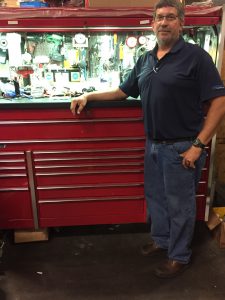
Scott Swafford is an ASE Master Technician in both diesel and automotive mechanics. With 28 years of experience in automotive mechanics and 23 years of diesel mechanics, Scott was the no-brainer choice for Director of Services of Certified Diesel Solutions. Building CDS from scratch with Dan Kaman, Rowe Transfer Inc. President, and Chris Lackey in 2009, Scott is proud of the services CDS provides, its six employees, and the company it has become.
Scott was born in Orlando, FL, and grew up in Miami, FL. He attended vocational school in Florida where he studied engines. Starting out as an automotive mechanic, Scott transitioned over to diesel mechanics when he worked for Ryder Truck Rental in Miami as a main hub shift manager. After leaving Ryder, he went to work for Kenworth Trucks as a shop foreman. It’s Kenworth trucks we can thank for transferring Scott to Knoxville 20 years ago. In 2007 Scott started working Rowe Transfer, Inc. and moved into Certified Diesel Solutions when it was created.
When he isn’t working, Scott likes to spend time with his wife and 2 children, his son Kyle, an aspiring trauma nurse, and his daughter Sara, an honor student and athlete. He is fond of being outside and the beauty of the East Tennessee area has driven his enjoyment of hunting and four-wheeler riding.
Want to learn more about Certified Diesel Solutions and the services they can offer you? Contact Scott and the team today by calling 865-964-6598 or fill out our online contact form HERE.








